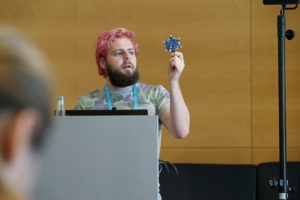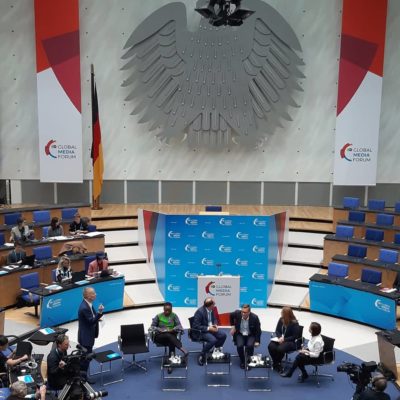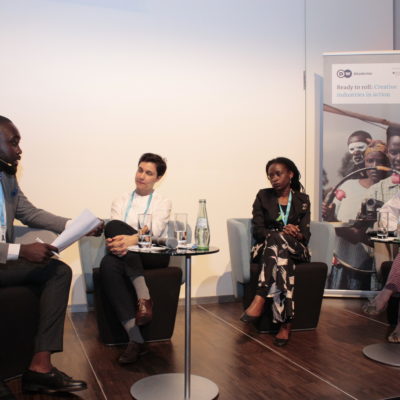
DW Global Media Forum 2019 | 09 | Session | “Programming with the mouse”: programming skills for kids | Marcus Weiner (Freelance Web Engineer, WDR, Germany)
hosted by Westdeutscher Rundfunk (WDR)
© DW/R. Oberhammer
Photo Credit: Deutsche Welle
by Mariell Raisma
There have been many discussions about the media education in general but not so
much about coding literacy, which can be seen as a part of it. Marcus Weiner, one of
the authors of “the Programming with the Mouse” (“Programmieren mit der Maus“),
believes that coding should be taught to kids already in the very early age.
In his words coding could be learned the same way as people learn to read and write. It
would help people to communicate in the computers language.
Enables the participation in society
“Society is getting in all kinds of matters digitalized, for example the way people get
information, consume media, but also the way it enables participation in society. Not
having mobile phone mostly feels alien nowadays,” says Weiner.
Even though digital products and devices largely influence our lives, there is a tendency
that the creation of these products and devices is in the hands of limited number of people
and companies.
In his opinion to enable all people to participate and shape society, they need to have the
skills to build these products. “The participation in digital society depends on the
knowledge of all things digital,” he explains.
Youth – shapers of the digital future
Weiner is convinced that it is never too early to learn coding. “Mostly we intend to say that
being able to read is a good basic skill to go further and learn coding. But there are also
special apps, where children can programme with icons,” says Weiner.
“This is basic media education. If they are going to school or secondary school they will
always be in contact with all kinds of media, so it is important for them to understand the
process.”
There are many organisations that encourage young people to create digital products at
their events and teach them to think digitally. For example, in Germany there is “Jugend
hackt” that organises hackathons for teenagers.
“Participants in this project started using data from public transport association to make an
app for teenagers in order to get a better understanding of public transport and the impact
on environment, air quality and CO2 emissions. The result was that the young coders
didn’t feel that data is abstract and alien thing anymore. They understood data and learned
how to measure it. Moreover, this coding literacy workshop empowered youth to interact
with political issues that are important to them.”
Creates critical media consumers
Youth need to understand the system to analyse and criticize it. For example, social media
algorithms and find answers to their questions like: “Why do I get to see certain posts in
social media and not the content that my friends are posting?” He says that in order to
understand how the social media, which they are consuming, works, they need to have a
basic understanding about algorithms. They need to know the connection between what
these companies build and what influence do they have on their users.
“It is important that youth unterstand that coding has so much wider meaning and it could
be the basics for many fields, not only IT, but also, for example, art or journalism, where
you can use coding to create more interactive content,” says Weiner.




